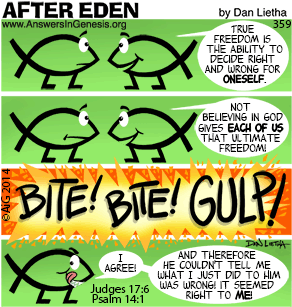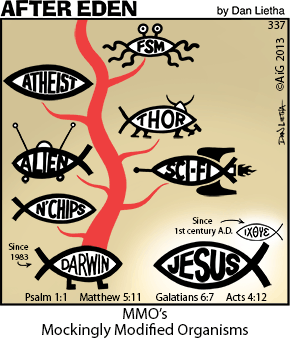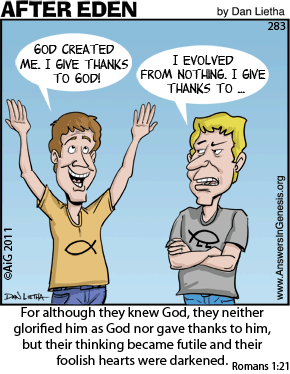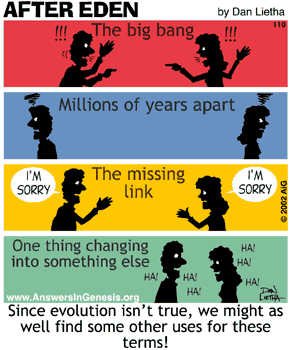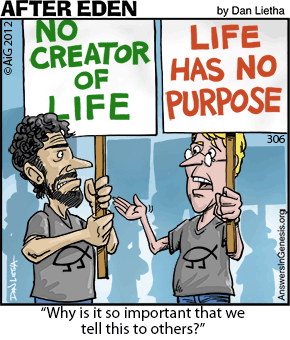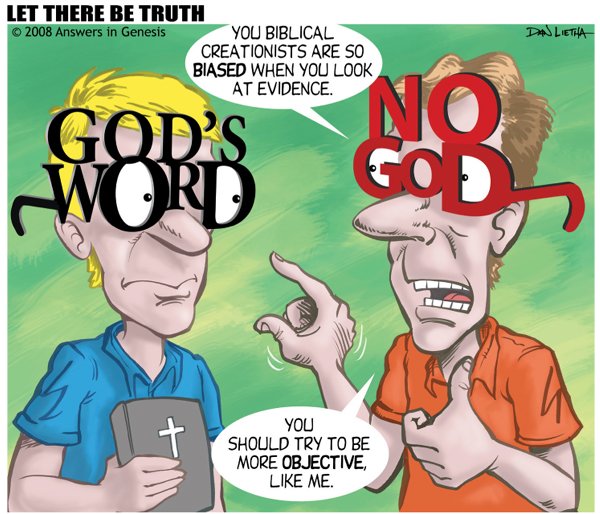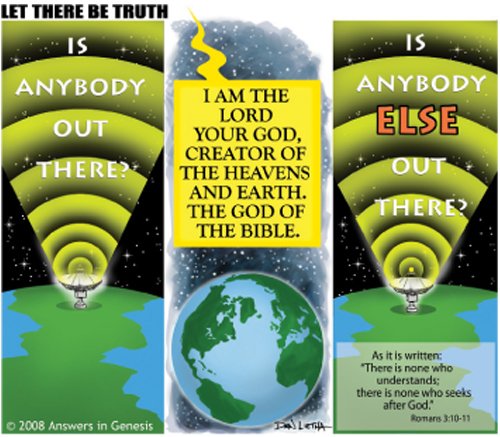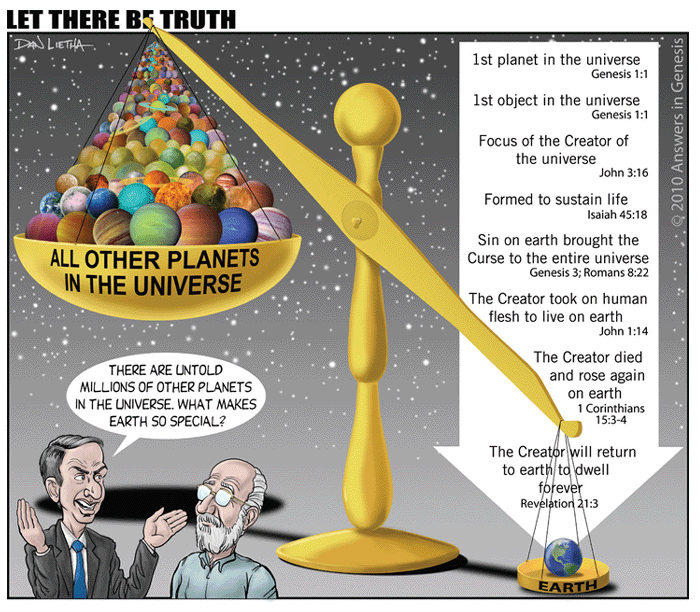What does the Bible *really* say about same-sex relationships?
- Thread starter Flynn
- Start date
You are using an out of date browser. It may not display this or other websites correctly.
You should upgrade or use an alternative browser.
You should upgrade or use an alternative browser.
Wait. We stumble around exploring moral ideas until we find the right ones that work? That sounds like subjective opinion becoming consensus.
Not at all. Sometimes truth is quite unpopular, and isn't met with a consensus at all. That doesn't change the fact that truth exists, and is objective in its existence.
Your statement about loving a child could be taken many ways. Subjectively, some people just feel love for children, while in fact other people Subjectively really hate being around children. This is massive bias. If either party shifts toward thinking about children objectively, they may both agree it's better for children to be educated and cared for so they can grow up and contribute to society. It doesn't take divine revelation to figure this out. .
That's irrelevant.
The question in this scenario is, regardless of their opinions - is it objectively true that loving the child is better than torturing it? Regardless of our personal opinions.
The way to re-ask it would be, if everyone in the world agreed torturing children was "right", would that make it in fact true?
If your answer is "yes", then atheism is more plausible on your world view.
If your answer to that question is "no", then you should reconsider theism.
Anyway, the suggestion that there is Objective Morality therefore God exists feels like a non sequitur argument.
I don't think so.
We all affirm morality. Why assume that just because not everyone agrees, that therefore *nothing* is truly "right" or "wrong"? Seems like a huge leap to me, and one which isn't livable. You will always live your life as though some things are bad/wrong, and as though some things are right/good. Why throw the baby out with the bathwater just because not everyone gets it right all the time, perfectly, and predictably?
We could both say there is Objective Morality and than make special claims about it's source.
But that would (at least) be a step in the right direction... because if we agreed that objective morality existed, then sure we'd struggle to identify the "right" thing to do in seemingly "gray" or complex moral situations, but at least we'd agree that yes, this moral question/scenario is important. It matters what we decide. Morality matters.
When morality is merely subjective, no one is ever "right". Again, it's like color preference at that point, and no one ever could be "right" or "wrong" in any moral sense. No one would ever be objectively "wrong" to torture a child, and no one would ever be objectively "right" to love a child, rather than simply destroy it.
it was a rhetorical question. Leave it at that.
Really? Because it sure seemed like you were implying that something I had said or referenced was illogical...
I'm fine dropping it, though.
The truth is, I like discussing this with you.
I don't sense you're letting emotions derail the discussion, nor do I get the sense that just because we disagree on some things that (therefore) we can't candidly, and honestly speak our minds. That's rare in internet forums, as far as my own personal experience goes... so thanks for that.
Flynn's point: my opinion is truth. Anything that doesn't fit into my perception of truth, is wrong. Therefore, I will cram my truth down your throat, because I cannot deny my truth.
This isn't accurate at all.
I guess I was trying say yes people can look at Moral Development in an Objective Way even like Sam Harris' Chess Game. That is just one piece of the Moral Puzzle though. Yeah, Objective Study of any subject is a good thing, but I also feel that Subjectivity cannot be excluded from the discussion, but you discard all this as 'irrelevant'.
I still don't see what is so special about your Objective Morality if humans can form such a wide range of opinions on topics such as Homosexual Behavior. What if we said the we all have Subjective Interpretations of this Objective Morality?
Are we functionally in the same place debating semantics?
EDIT: I think your scenario is a little over the top. It would have to be explained to me how the entire world arrived at that decision. Are you including the children themselves in believing it is good that they're being tortured in this way?
Taking this further, can Objective Morality weight-in on whether it's morale to torture a masochist?
I still don't see what is so special about your Objective Morality if humans can form such a wide range of opinions on topics such as Homosexual Behavior. What if we said the we all have Subjective Interpretations of this Objective Morality?
Are we functionally in the same place debating semantics?
EDIT: I think your scenario is a little over the top. It would have to be explained to me how the entire world arrived at that decision. Are you including the children themselves in believing it is good that they're being tortured in this way?
Taking this further, can Objective Morality weight-in on whether it's morale to torture a masochist?
Last edited:
"What the christian bible says" is too vague a question.
That's a statement, not a question.
There are many versions of the christian bible, all rewritten and altered to fit the preffered views of the author.
The many translations of the Bible don't teach any different truths. They all teach the same truths, they just form the truth in a different way.
In the same way that translating something from "French to English" involves preserving the same message, but using different words to get there, that's how the many different translations of the Bible are. They all give you the same message.
Also worth noting - the dead sea scrolls, combined with other archeological discoveries over the years have confirmed that the text we have today are extremely reliable. Even skeptics and historical critics will say the text we have today is well over 95% identical to the text as it was written by the original authors, with other estimates saying the text is over 99% accurate.
Therefore, your claim about the "fit the preferred view of the author" claim is demonstrably false.
The reason why we need different translations is because language norms change so frequently. For example, "what's up" means something entirely different to today's modern teen compared to what the same words may have meant to an eighteenth century philosopher.
If you can show me contradictory truths between two versions of the Bible, then we can revisit this point, but until then, I think it's a null issue.
Is there a passage in the Dead Sea Scrolls you think is noteworthy? I see many Bibles at books stores but I don't think I've ever seen a copy of the Dead Sea Scrolls at Books-A-Million.
I guess I was trying say yes people can look at Moral Development in an Objective Way even like Sam Harris' Chess Game.
Looking at something "objectively" doesn't make the "thing" you're looking at objective or subjective. This isn't about epistemology, it's about ontology.
That is just one piece of the Moral Puzzle though. Yeah, Objective Study of any subject is a good thing, but I also feel that Subjectivity cannot be excluded from the discussion, but you discard all this as 'irrelevant'.
This is all epistemology, though. That is, you're talking about how we come to know what's "right" and what's "wrong", not whether or not "right" or "wrong" (as such) even exist. I'm referring to ontology here. Do objective moral values exist, or not? Again, if the Nazi's won WWII and killed or brainwashed all who disagreed with exterminating the Jews, would the fact that no one on earth believed killing the Jews was wrong therefore make it right?
You have to look at this from an ontological perspective, not an epistemological perspective.
I still don't see what is so special about your Objective Morality if humans can form such a wide range of opinions on topics such as Homosexual Behavior..
I'm not the arbiter of "objective morality", God is. I've never claimed to know what is objectively moral, other than very simple claims like, "it's wrong to torture an innocent child for fun".
What if we said the we all have Subjective Interpretations of this Objective Morality?
I'd say that's very true. We also all have subjective opinions about religion, the meaning of life, etc... but that doesn't change the fact that truth exists, and not everyone can be right. Only one truth exists. Truth is not relative.
Are we functionally in the same place debating semantics?
I don't think so... you're debating morale epistemology (how we come to know morality, and whether or not we've got it right) - I'm talking about moral ontology, (that is - what's the foundation for morality? Is it just social adaptations and therefore there is no right and wrong, or does objective morality exist?)
EDIT: I think your scenario is a little over the top. It would have to be explained to me how the entire world arrived at that decision. Are you including the children themselves in believing it is good that they're being tortured in this way?
Again, you're now talking about moral epistemology... but that's not what I'm discussing. I'm very open to theories about how we come to know morality (and the truth of it), but this discussion is broader than that. The question is, is anything truly "right" or truly "Wrong" - regardless of whether we recognize it as such or not?
Taking this further, can Objective Morality weight-in on whether it's morale to torture a masochist?
I think that's an incoherent question. Something is either objectively true or not. "objectivity" doesn't "weigh in" on anything. It's binary. It's 1 or 0. It's true or false.
Therefore, I think the question would need to be asked like this (if I understand your intent):
"Is it morally wrong to torture a masochist, since masochists by nature are aroused by pain?"
To that question, I would say - I don't know... but it doesn't matter whether I know or not. What matters is, do you believe there's just one single moral 'truth'? Even if there's only one example, it would then follow that objective morality exists, and therefore atheism is probably false.
Is there a passage in the Dead Sea Scrolls you think is noteworthy? I see many Bibles at books stores but I don't think I've ever seen a copy of the Dead Sea Scrolls at Books-A-Million.
"In the beginning, God created the heavens and the earth."
Maybe what's going on here is I tend to seek things that have practical use or value. Suppose, I granted your Objective Morality as seen through the lens of ontology. What if most of us still wind up debating Subjective Interpretations of it? Or we still go back and forth on the original topic of Homosexuality?
Maybe you think Objective Morality is a Great Truth, but it's not a very plain truth. It's a very peculiar idea to push this Great Truth of Objective Morality, but we are all left guessing what it really is. If you're referring to Biblical scripture, we even have different interpretations of that.
What does it mean if you feel so vehemently that Homosexuality is an Abomination while I really don't care what consenting adults do in the bedroom? Is your Celestial Beacon of Objective Morality sending mixed messages?
In fact, of this is sort of etched into creation, why do people wind up Gay in the first place? Why would God make Gay people and condemn them on the basis of this Objective Morality?
This begins to feel like a Tautology
Maybe you think Objective Morality is a Great Truth, but it's not a very plain truth. It's a very peculiar idea to push this Great Truth of Objective Morality, but we are all left guessing what it really is. If you're referring to Biblical scripture, we even have different interpretations of that.
What does it mean if you feel so vehemently that Homosexuality is an Abomination while I really don't care what consenting adults do in the bedroom? Is your Celestial Beacon of Objective Morality sending mixed messages?
In fact, of this is sort of etched into creation, why do people wind up Gay in the first place? Why would God make Gay people and condemn them on the basis of this Objective Morality?
This begins to feel like a Tautology
Is it the moral response for a Christian to refuse a wedding cake for a Gay Marriage?
For what it's worth, I'm siding with the Christian here on legal grounds. He should have the right as a private business owner to refuse service to anyone for any reason. The court ruling was completely wrong here.
It would have been nice if he was gracious and made the cake anyway, but he has the right to refuse to do it.
http://www.thenewamerican.com/cultu...ame-sex-couple-must-take-sensitivity-training
A Colorado baker found guilty of discrimination for refusing to bake a wedding cake for a same-sex couple must go through sensitivity training as part of his penance and rehabilitation. In December of last year, Administrative Law Judge Robert Spencer found Jack Phillips, owner of Masterpiece Cake Shop in the Denver suburb of Lakewood, guilty of discriminating against same-sex couple Dave Mullin and Charlie Craig when he told them in July 2012 that he couldn't bake a cake to celebrate their supposed marriage because homosexual behavior conflicted with his Christian beliefs.
Phillips appealed the verdict to the Colorado Civil Rights Commission, which stood by Spencer's decision and ordered May 30 that Phillips be required to bake wedding cakes for same-sex couples in conflict with his moral Christian convictions. Additionally, Phillips and his staff will have to submit to a regimen of state-sanctioned sensitivity training to make sure they are in line with Colorado's non-discrimination statute.
Over the next two years Phillips will also be required to submit quarterly reports to Colorado's Civil Rights Commission concerning his business practices, informing the commission whether he has turned any business away, most importantly homosexual customers. “So if his shop is closed or he's out of flour, he needs to report to the commission,” explained Nicolle Martin of Alliance Defending Freedom (ADF), the conservative Christian legal advocacy group that represented Phillips in the case, to Fox News on June 5.
For what it's worth, I'm siding with the Christian here on legal grounds. He should have the right as a private business owner to refuse service to anyone for any reason. The court ruling was completely wrong here.
It would have been nice if he was gracious and made the cake anyway, but he has the right to refuse to do it.
http://www.thenewamerican.com/cultu...ame-sex-couple-must-take-sensitivity-training
A Colorado baker found guilty of discrimination for refusing to bake a wedding cake for a same-sex couple must go through sensitivity training as part of his penance and rehabilitation. In December of last year, Administrative Law Judge Robert Spencer found Jack Phillips, owner of Masterpiece Cake Shop in the Denver suburb of Lakewood, guilty of discriminating against same-sex couple Dave Mullin and Charlie Craig when he told them in July 2012 that he couldn't bake a cake to celebrate their supposed marriage because homosexual behavior conflicted with his Christian beliefs.
Phillips appealed the verdict to the Colorado Civil Rights Commission, which stood by Spencer's decision and ordered May 30 that Phillips be required to bake wedding cakes for same-sex couples in conflict with his moral Christian convictions. Additionally, Phillips and his staff will have to submit to a regimen of state-sanctioned sensitivity training to make sure they are in line with Colorado's non-discrimination statute.
Over the next two years Phillips will also be required to submit quarterly reports to Colorado's Civil Rights Commission concerning his business practices, informing the commission whether he has turned any business away, most importantly homosexual customers. “So if his shop is closed or he's out of flour, he needs to report to the commission,” explained Nicolle Martin of Alliance Defending Freedom (ADF), the conservative Christian legal advocacy group that represented Phillips in the case, to Fox News on June 5.
Maybe what's going on here is I tend to seek things that have practical use or value. Suppose, I granted your Objective Morality as seen through the lens of ontology. What if most of us still wind up debating Subjective Interpretations of it? Or we still go back and forth on the original topic of Homosexuality?
Maybe you think Objective Morality is a Great Truth, but it's not a very plain truth. It's a very peculiar idea to push this Great Truth of Objective Morality, but we are all left guessing what it really is. If you're referring to Biblical scripture, we even have different interpretations of that.
What does it mean if you feel so vehemently that Homosexuality is an Abomination while I really don't care what consenting adults do in the bedroom? Is your Celestial Beacon of Objective Morality sending mixed messages?
In fact, of this is sort of etched into creation, why do people wind up Gay in the first place? Why would God make Gay people and condemn them on the basis of this Objective Morality?
This begins to feel like a Tautology
1. Any rational discussion about morality pivots on whether or not there's any objectivity to it or not. If morality is subjective, there's no sense arguing about what's moral or not... it would be silly. It would be like arguing blue's better than green... so morality is only worth arguing about if it's grounded ontologically in objectivity. You like killing babies for fun, he likes loving children and sacrificing his own well being for those children... neither of you are "right" or "wrong", "better" or "worse"... so why argue, let alone discuss it? It's pointless, and meaningless on an atheistic, subjective view.
2. God doesn't condemn gay people, and neither do Christians. Homosexual behavior is what's condemned.
Is it the moral response for a Christian to refuse a wedding cake for a Gay Marriage?
What's moral is to love God with all your mind, heart, soul, and strength... and love others as yourself. Was he loving God and others by refusing service? Well, I don't have enough information to make a judgment there... nor is it really something I care to judge.
Legally speaking, I think it's pretty shaky. Many places of business post signs which say, "we reserve the right to refuse service to anyone", and I don't know what is or is not legally the difference between rightfully refusing a customer and "discriminating" against them.
I don't know. I'd have to really look into it... and to be honest, I'm pretty tired tonight.
1. Any rational discussion about morality pivots on whether or not there's any objectivity to it or not. If morality is subjective, there's no sense arguing about what's moral or not... it would be silly. It would be like arguing blue's better than green... so morality is only worth arguing about if it's grounded ontological in objectivity. You like killing babies for fun, he likes loving children and sacrificing his own well being for those children... neither of you are "right" or "wrong", "better" or "worse"... so why argue, let alone discuss it? It's pointless, and meaningless on an atheistic, subjective view.
What if we have our own Epistemological Objectivity? No, this is not the same Universal idea your talking about, but I don't think it is completely meaningless or without practical use to help develop social behavior.
As for why argue? Just look at this thread man. Humans are very much into arguing, discussing, and working things out. Sometimes we might even come to agreements. Sometimes we disagree so much we get violent. It keeps getting sorted out this way because your particular Beacon Of Objective Morality is failing to give us all common direction.
Aside from that, I'm not sure how anyone can be convinced even their Subjective view is meaningless. It has meaning to me and that counts for something. What if I can successfully argue my view and convince others and we form a consensus? Even that is not any kind of absolute. My views may later be challenged and over ruled by something better. Or it may turn out my views were replaced by something worse. We try out best, but sometimes in the realm of ideas we backslide.
Despite how imperfect this all seems, I don't buy the idea that it's all futile and meaningless. Maybe it seems meaningless to you because we're not measuring up to your Universal Metric. Well, for now there is no way to do the comparison unless it is shown to us all to see how we're stacking up. If your ontological Objective Morality exists, but is not revealed to us in plain terms we can all agree on, than what meaning does it have for us?
Anyway, yeah it's Sunday and some of us get to enjoy sleeping in.
The many translations of the Bible don't teach any different truths. They all teach the same truths, they just form the truth in a different way.
In the same way that translating something from "French to English" involves preserving the same message, but using different words to get there, that's how the many different translations of the Bible are. They all give you the same message.
Also worth noting - the dead sea scrolls, combined with other archeological discoveries over the years have confirmed that the text we have today are extremely reliable. Even skeptics and historical critics will say the text we have today is well over 95% identical to the text as it was written by the original authors, with other estimates saying the text is over 99% accurate.
Therefore, your claim about the "fit the preferred view of the author" claim is demonstrably false.
The reason why we need different translations is because language norms change so frequently. For example, "what's up" means something entirely different to today's modern teen compared to what the same words may have meant to an eighteenth century philosopher.
If you can show me contradictory truths between two versions of the Bible, then we can revisit this point, but until then, I think it's a null issue.
There are large difference between the versions, or else King James would have had no motivation for getting his own rendition of the Bible out to the people. The King James Bible was created and forced on the English people for political reasons. The King James version was largely unpopular back then, but King James made sure he had his way by placing a ban on all printing of the Geneva Bible in 1637. To be in the possession of a Geneva Bible was a felony against the King and punishable to the full extent of the law. Everyone has their own ideals, and they love mixing them into the various versions created.
What if we have our own Epistemological Objectivity?
Rephrased, "what is we all have our own way of coming to know what is objectively true?"... right? Is that what you're asking with this question?
I'd say to that, we probably all do have our own ways of coming to what's true - but the road to the truth doesn't have any effect on the objectivity on the truth, and not everyone does arrive at the truth.
No, this is not the same Universal idea your talking about, but I don't think it is completely meaningless or without practical use to help develop social behavior.
That's your subjective opinion. The unfortunate reality for atheists though, is that regardless of your opinion, factually, there's no objective meaning or purpose to anything. It's all just a sea of relativism, with no rights, no wrongs.
As for why argue? Just look at this thread man. Humans are very much into arguing, discussing, and working things out. Sometimes we might even come to agreements. Sometimes we disagree so much we get violent. It keeps getting sorted out this way because your particular Beacon Of Objective Morality is failing to give us all common direction.
Correction, I'm no arbiter of any objective morality. God is.
But what I don't think you're dealing with is the reality that logically, it's inescapable that if morality is not an objective expression/property that is a reflection of God, then it has no grounding in any objectivity, and it's all subjective, without objective meaning... so it all comes back to, is there a God? If not, then nothing matters. Life is pointless. Objectively. That's not my opinion, that's a necessary fact that follows logically and inescapably. If God does exist, then it means objective morality does exist, and some things are truly right and truly wrong.
Aside from that, I'm not sure how anyone can be convinced even their Subjective view is meaningless. It has meaning to me and that counts for something.
On the atheistic view, that counts for objectively nothing. You're nothing more than an evolved primate who will die one day, and who's life is utterly meaningless, as all of humanity is doomed to the eventual heat death of the universe. Everything is meaningless, and pointless ultimately. That's logically inescapable on the atheistic view.
So on your own view, no, your subjective meaning is objectively meaningless. Who cares what you think? Who cares what I think? We're all doomed to death, and the universe is doomed to collapse. Why try to gain knowledge? Ignorance is bliss. Why try to "do the right thing" and self sacrifice? Anything you give up in this life is something you'll never get. Why *NOT* do everything you can to seek pleasure? It feels good, and this life is all you have. Why *NOT* rape a child if you enjoy it? Because it takes away from their happiness? Why does their happiness matter? They're doomed to death, and a universe that will collapse.
On atheism, there is truly no meaning, no purpose, no "right", no "wrong"... any illusion to the contrary is just that... an illusion; a social cultural evolution no different from any other evolved thing.
What if I can successfully argue my view and convince others and we form a consensus? Even that is not any kind of absolute. My views may later be challenged and over ruled by something better. Or it may turn out my views were replaced by something worse. We try out best, but sometimes in the realm of ideas we backslide.
Read your words to yourself. Listen to it. You're not getting it.
On an atheistic view, how is it possible to get "something better"? How is it possible to get "something worse"?
In order to have "something better" you need a "best". Something is only "better" if it's further away from "bad" or closer to "good" than a previous state. You can't have a "best" if "best" is subjective. All you get is "different". If your idea of "best" is world peace with no pain and suffering without knowing God, your idea of "best" is different from mine, and therefore you can't loosely throw around terms like "better" or "worse" because on your view, there isn't "better" or "worse" (morally speaking). Your view doesn't allow it.
Despite how imperfect this all seems, I don't buy the idea that it's all futile and meaningless..
It's not your choice to make. It's a philosophical fact; without God, there is no purpose, no design, no "right", no "wrong", only pitiless indifference. Anything you claim matters might not to someone else. Any ideal you strive toward may be foolishness to someone else.
This is the logical conclusion to an atheistic world view. Richard Dawkins and Frederich N. got it right. Without God, it's all objectively meaningless (and being that it's objectively meaningless means that your opinion doesn't change that fact).
Maybe it seems meaningless to you because we're not measuring up to your Universal Metric.
I have no universal metric.
Again, I'm not the arbiter of truth, or objective morality. That's God's territory.
Well, for now there is no way to do the comparison unless it is shown to us all to see how we're stacking up. If your ontological Objective Morality exists, but is not revealed to us in plain terms we can all agree on, than what meaning does it have for us?
"If your ontological objective morality..." - is incoherent. If it's objectively true, it's not "mine".
The program of science is incomplete, confusing, and imperfect... yet from this messed up, imperfect advanced history of primates, we've managed to figure out quite a bit of truth about the world around us.
Similarly, through philosophy, theology, and Biblical studies (even science) - we can sure find out a lot about God, and morality.
Do you say that just because science hasn't revealed EVERYTHING to us, that therefore it's worthless? Of course not! It takes great minds to figure out the depths of our world, and it would take great minds to figure out the depths of moral truth - but even the lay man can live a full, fruitful life not knowing or understanding the depths of science... and similarly, we don't need to know or understand or agree on morality in its fullness to know what's basically right and wrong... but we run into trouble when we want to deny that a God exists, and then we have to take the very awkward stance of then denying that *anything* morally is "true", and it's all just subjective... but that's what the atheist has to affirm, because without God, there is no objective morality, and raping a child is no "better" (as you'd like to affirm) than torturing the child with red hot needles through its eyes.
Anyway, yeah it's Sunday and some of us get to enjoy sleeping in.
Enjoy your rest.
If a person thinks there's a lot of mixes between the Bibles and thus do not agree with other Scriptures, then I humbly encourage him/her to read the book of The Case of Christ by Lee Strobel. He did an excellent job of reviewing many different manuscripts (such as Unical Manuscripts, Codex Siaiticis, Codex Vaticanus, Latin Vulgate, etc) in order to determine whether or not Scriptures have changed over time. He was surprised to discover that they do not change much over time, as many people commonly assumed, and, because of that, Christians greatly increase their trust/faith in the Scripture. Definitely give yourself time to read that book. It's good for study. 
It is extremely important to remember that English version of the Bible is not the most accurate language*; to truly understand the meaning of God's Word, Greek/Latin/Hebrew is a good place to learn/study in order to understand the Scriptures/character of God. Furthermore, when trying to read the Scriptures, there are two terms we need to keep in mind: Eisegesis and Exegesis.
--Eisegesis: An interpretation that expresses an interpreter's own ideas, bias or the like, rather than the meaning of the text.
--Exegesis: Critical explanation or interpretation of a text or portion of a text; grammatical-historical interpretation method.
In the year 1560, Geneva Bible, known as The Bible of the Protestant Reformation/The Puritans and Pilgrims, was produced by John Calvin, John Knox, Myles Coverdale and John Foxe. In fact, Geneva was the first to include numbers (chapters and verses) and was the first to reach America. Also it was the first to include Study Bible with extensive commentary notes. As you can see, when carefully compare Geneva to King James Bible (1611), the difference between their Scriptures isn't much when reading it as Exegesis (not Eisegesis).
---------------------------
*To compare English and Greek, definitely check out English Hexapla Parallel NT (1841). To give you a best example: the Greek in the Bible, there are three words for love: eros, phileo, and agapao. In English, we only see one word "love." Many people quickly assumed it means the same thing when Jesus asked Peter if he loves Him three times. This is incorrect. In Greek, it explains even further the meaning of the word "love" and thus it gives us a greater understand the text/Scripture. Interesting, yes? If only people are willing to take the time to carefully study and understand more clearly, then they won't have the problem to say that the Scripture hasn't change overtime.
If only people are willing to take the time to carefully study and understand more clearly, then they won't have the problem to say that the Scripture hasn't change overtime.
It is extremely important to remember that English version of the Bible is not the most accurate language*; to truly understand the meaning of God's Word, Greek/Latin/Hebrew is a good place to learn/study in order to understand the Scriptures/character of God. Furthermore, when trying to read the Scriptures, there are two terms we need to keep in mind: Eisegesis and Exegesis.
--Eisegesis: An interpretation that expresses an interpreter's own ideas, bias or the like, rather than the meaning of the text.
--Exegesis: Critical explanation or interpretation of a text or portion of a text; grammatical-historical interpretation method.
In the year 1560, Geneva Bible, known as The Bible of the Protestant Reformation/The Puritans and Pilgrims, was produced by John Calvin, John Knox, Myles Coverdale and John Foxe. In fact, Geneva was the first to include numbers (chapters and verses) and was the first to reach America. Also it was the first to include Study Bible with extensive commentary notes. As you can see, when carefully compare Geneva to King James Bible (1611), the difference between their Scriptures isn't much when reading it as Exegesis (not Eisegesis).
---------------------------
*To compare English and Greek, definitely check out English Hexapla Parallel NT (1841). To give you a best example: the Greek in the Bible, there are three words for love: eros, phileo, and agapao. In English, we only see one word "love." Many people quickly assumed it means the same thing when Jesus asked Peter if he loves Him three times. This is incorrect. In Greek, it explains even further the meaning of the word "love" and thus it gives us a greater understand the text/Scripture. Interesting, yes?
There are large difference between the versions, or else King James would have had no motivation for getting his own rendition of the Bible out to the people. The King James Bible was created and forced on the English people for political reasons. The King James version was largely unpopular back then, but King James made sure he had his way by placing a ban on all printing of the Geneva Bible in 1637. To be in the possession of a Geneva Bible was a felony against the King and punishable to the full extent of the law. Everyone has their own ideals, and they love mixing them into the various versions created.
I haven't heard you site one theological difference, you've only made assertions.
Plus, your version of history doesn't align with the historical accounts I've heard... and unless you're a historian, I think I'd lean against the assertions of a game forum poster, and rely more heavily on experts who've researched the topic.
I have yet to see anyone in this thread show one theological difference between translations. Not one.
...so if you wish to continue making that claim, it would be nice to see some evidence for it.
So on your own view, no, your subjective meaning is objectively meaningless. Who cares what you think? Who cares what I think? We're all doomed to death, and the universe is doomed to collapse. Why try to gain knowledge? Ignorance is bliss. Why try to "do the right thing" and self sacrifice? Anything you give up in this life is something you'll never get. Why *NOT* do everything you can to seek pleasure? It feels good, and this life is all you have. Why *NOT* rape a child if you enjoy it? Because it takes away from their happiness? Why does their happiness matter? They're doomed to death, and a universe that will collapse.
On atheism, there is truly no meaning, no purpose, no "right", no "wrong"... any illusion to the contrary is just that... an illusion; a social cultural evolution no different from any other evolved thing.
What if I consider myself Ignostic? Is that only functionally Atheist to you?
So.... being Atheist to you makes things meaningless? To me, something here for a short time becomes more precious. I guess though you still think that for some reason I would more fully appreciate everything if I switched over to full Theism. I still have a vast amount of religions to choose from. I could even choose the "wrong" Christian Denomination. Some people don't even think Catholics are Christians. In fact, I was raised Catholic and have heard many Christians say Catholics are all going to Hell.
Stepping back into that world doesn't give me a warm fuzzy feeling. So what if I decided to become Pagan? That would give me a great sense of meaning seeing a spiritual foundation for everything. It seems that would fill the gap you see with Atheism. A Pagan's world should be full of meaning.
In fact, I have seriously entertained the view of Pantheism in the past. Maybe this would be a good fit for me.
You must be studying the wrong history. Because this history of King James and his ban on the Geneva Bible is known everywhere.I haven't heard you site one theological difference, you've only made assertions.
Plus, your version of history doesn't align with the historical accounts I've heard... and unless you're a historian, I think I'd lean against the assertions of a game forum poster, and rely more heavily on experts who've researched the topic.
I have yet to see anyone in this thread show one theological difference between translations. Not one.
...so if you wish to continue making that claim, it would be nice to see some evidence for it.
So on your own view, no, your subjective meaning is objectively meaningless. Who cares what you think? Who cares what I think? We're all doomed to death, and the universe is doomed to collapse. Why try to gain knowledge? Ignorance is bliss. Why try to "do the right thing" and self sacrifice? Anything you give up in this life is something you'll never get. Why *NOT* do everything you can to seek pleasure? It feels good, and this life is all you have. Why *NOT* rape a child if you enjoy it? Because it takes away from their happiness? Why does their happiness matter? They're doomed to death, and a universe that will collapse.
On atheism, there is truly no meaning, no purpose, no "right", no "wrong"... any illusion to the contrary is just that... an illusion; a social cultural evolution no different from any other evolved thing.
Most people don't enjoy raping children because, as humans, our brains have evolved to be attracted to sexually mature partners. Most people don't think it's a good idea because they can sympathise with the child. Again this is evoluntionary...protecting the offspring of the species is in the interests of the species. Those that do enjoy raping children are discouraged from doing so by laws set in place by the majority whose brains have evolved to find it repulsive and thus have a desire to protect children. We don't need God in order to make these decisions. Just because someone doesn't believe in God doesn't make them some barbaric hedonist.
Your point is quite revealing though. Who does care what we think? We may all be doomed to death in a universe full of nothingness. A belief in God can give you an escape from that..a purpose...a hope for life eternal. I for one don't need it. I'm perfectly at peace with our species' potential insignificance, and it doesn't make me better or worse than a Christian who believes in a god. Maybe there is a creator out there..it's just my firm belief that he/she/it isn't tied in with any specific doctrine known to man. The idea is utterly absurd to me, that a god would condemn so many people based upon geography.
So do I think there may be a creator out there? Hell yes. Do I think he is the Christian God? Not a chance. Do I think he is any one of the Hindu Gods? Hell no. Do I think the most important thing is to enjoy life and try and be a good person? Absolutely. Do I think the norse gods are by far the coolest? Too right.
You must be studying the wrong history. Because this history of King James and his ban on the Geneva Bible is known everywhere.
Hey, psst....the King James bible was not written by King James.
And where did Flynn refute your history lesson? Or do just like repeating yourself? Maybe before a threepeat, you can enlighten us on the significant doctrinal differences between these two versions of the Bible (will wait for your Google search).
When did I say King James wrote it?Hey, psst....the King James bible was not written by King James.
And where did Flynn refute your history lesson? Or do just like repeating yourself? Maybe before a threepeat, you can enlighten us on the significant doctrinal differences between these two versions of the Bible (will wait for your Google search).
What if I consider myself Ignostic? Is that only functionally Atheist to you?
So.... being Atheist to you makes things meaningless? To me, something here for a short time becomes more precious. I guess though you still think that for some reason I would more fully appreciate everything if I switched over to full Theism. I still have a vast amount of religions to choose from. I could even choose the "wrong" Christian Denomination. Some people don't even think Catholics are Christians. In fact, I was raised Catholic and have heard many Christians say Catholics are all going to Hell.
Stepping back into that world doesn't give me a warm fuzzy feeling. So what if I decided to become Pagan? That would give me a great sense of meaning seeing a spiritual foundation for everything. It seems that would fill the gap you see with Atheism. A Pagan's world should be full of meaning.
In fact, I have seriously entertained the view of Pantheism in the past. Maybe this would be a good fit for me.
Yes, being an atheist makes your actions meaningless. You described your short time here as "precious." Great, but what makes it precious? Where is the value in it? It's gone when you die. If atheism is to believed, you won't even care when you're dead, nor will anyone else because it'll be as if you never existed. Everything you've ever dreamed, every good deed you've done, everyone you've loved, everything that you think is "precious" will be gone. poof. So yeah, atheism equals emptiness equals meaningless.
What Flynn has been saying so eloquently is that if you believe in any moral absolutes, you need to consider the source of those absolutes, which are impossible to be found in atheism. If you can finally agree with him, with logic really, you need to switch over to a theistic view.
You're right, there are a vast amount of religions, and they all teach different things. It's up to you to figure out what is true and what isn't, but it begins by believing there is a God and you are not Him. It's been my experience, through the miracles that I've seen and the personal experiences I've had, that Christ is the only way.


